Editorial: Cars And Currencies

Imagine your sell someone a house. It’s hard to imagine, I know, but humor me. You settle on a million. You sign. Papers are shuffled, titles researched. Three months later, at the closing, you get a check for $780K. Imagine there’s nothing you can do. Your lawyers are shrugging their shoulders. $220K poof, gone. The same happens every day in international trade. Welcome to the strange world of world currencies. You sell something in Euro, Yen, Won or Rupees. You ask: “How much is that in real money?” And a few days later, it’s all changed. Such is the life of a global automaker.
Japanese automakers are increasingly anxious about the high value of their Yen. Sure, their holidays and green fees in Hawaii will get cheaper. But when the yen is high their profits from abroad evaporate.
For eons, one Yankee dollar was worth more than 100 Japanese yen. In August, the dollar cost 110 yen. A week ago, it was down to 87 yen. The change spills yet more red ink onto Japanese automakers’ ink-saturated books. Against the Euro, the picture is bleaker still. But the Japanese don’t have as much exposure to the Euro as to the greenback.
Toyota is especially jumpy: “High up among Toyota’s problems is the recent surge in the yen against the dollar and euro. Every ¥1 gain against the dollar results in about a ¥40b plunge in profits at Toyota. While the company made its initial forecast based on an exchange rate of ¥100 to the dollar, the US currency appears trapped around the ¥90 level, a 13-year low,” writes the Manchester Guardian.
If you don’t like thinking in yen, here’s the translation [via Business Week]. “For every one yen strengthening against the dollar, Toyota’s operating earnings are reduced by over $450m.” According to CNNMoney, “Toyota expects losses of about $2.2b due to currency exchange rates alone.” Meaning: If the darned yen wouldn’t have surged suddenly, Toyota would still make a small profit, instead expected losses for fiscal ’08 between $1.5b to $1.7b.
Yoichi Hojo, COO for business management operations of Honda, told the Nikkei [sub] “If the exchange rate remains firmly below 90 yen to the dollar, and depending on the number of vehicles we export from Japan, then there is a possibility our consolidated operating profit for fiscal 2008 will be less than the projected 180 billion yen.”
Hojo’s comments also highlight the fact that the exchange rate is a major driver in whether they’ll build cars at home or abroad. “If the exchange rate remains below 90 yen to the dollar, it would be advantageous for us to increase overseas production, and we would be forced to cope with the issue of reducing the labor force at our domestic plants. On the other hand, if the yen significantly weakens, we would have to increase domestic production and reduce costs at our overseas production bases.”
Locating, building and ramping-up of a new car plant takes many years. Who dares to predict where the dollar, euro, yen will be three years from now? If anybody would have predicted in July that the yen, the currency of that non-growth, zero-interest country Japan would appreciate against the Euro by 33 percent within three months, that person would have been committed. Only to be released four months later and bestowed with the Nobel Prize in Economics.
“So yes,” says CNN Money, “the news is history-making and head-turning from Toyota. But it also paints a gloomy picture of how deep Japan’s recession will be and how tough it will be to recover.” Again, the bulk of the loss doesn’t come from Toyota’s weakness, or the weakness of the market, but the strength of the Japanese currency.
All is not lost for ToMoCo’s honchos. The yen rose from 100 to the dollar (at which it is in the books of most Japanese auto companies) to 87 to the dollar in just six weeks, The Japanese fiscal year usually ends in March. With a little luck or some adroit central bank intervention, the dollar may be worth 100 yen again in March, and Toyota would be profitable.
Japanese officials all the way up to Finance Minister Shoichi Nakagawa have dropped hints that an intervention is possible. Nakagawa told reporters in Tokyo ten days ago that he has “the means” to limit the yen’s strength and is “keenly watching” developments in foreign-exchange and other financial markets, as well as the economy. Since then, the rhetoric’s got louder. But there’s been no intervention yet.
According to Bloomberg, the last time Japan intervened on its own, it sold a record 20.4 trillion yen in 2003 and 14.8 trillion yen in the first quarter of 2004, when the yen strengthened to 103.42 per dollar.
“I am surprised the Japanese haven’t intervened,” said Dennis Gartman, economist and editor of the Gartman Letter in Suffolk, Virginia. “Intervention to weaken your currency can be very effective.” Especially between the holidays, when the markets are thin. Or in March, when it’s desperately needed.

Bertel Schmitt comes back to journalism after taking a 35 year break in advertising and marketing. He ran and owned advertising agencies in Duesseldorf, Germany, and New York City. Volkswagen A.G. was Bertel's most important corporate account. Schmitt's advertising and marketing career touched many corners of the industry with a special focus on automotive products and services. Since 2004, he lives in Japan and China with his wife <a href="http://www.tomokoandbertel.com"> Tomoko </a>. Bertel Schmitt is a founding board member of the <a href="http://www.offshoresuperseries.com"> Offshore Super Series </a>, an American offshore powerboat racing organization. He is co-owner of the racing team Typhoon.
More by Bertel Schmitt
Latest Car Reviews
Read moreLatest Product Reviews
Read moreRecent Comments
- Jalop1991 Is this the beginning of the culmination of a very long game by Tesla?Build stuff, prove that it works. Sell the razors, sure, but pay close attention to the blades (charging network) that make the razors useful. Design features no one else is bothering with, and market the hell out of them.In other words, create demand for what you have.Then back out of manufacturing completely, because that's hard and expensive. License your stuff to legacy carmakers that (a) are able to build cars well, and (b) are too lazy to create the things and customer demand you did.Sit back and cash the checks.
- Buickman more likely Dunfast.
- Chris P Bacon "Dealership". Are these traditional franchised dealers, or is Vinfast selling direct?
- Chris P Bacon Full self driving is a fraud. Even aircraft "autopilot" requires pilot interaction, attention, and most importantly of all, training is required. We've already seen accidents by idiots who think they don't need to interact with their Tesla. The system gets confused by simple lane markings, and there are many more variables driving down the street than there is in a jet aircraft.
- ToolGuy I read through the Tesla presentation deck last night and here is my take (understanding that it was late and I ain't too bright):• Tesla has realized it has a capital outlay issue and has put the 'unboxed' process in new facilities on hold and will focus on a 'hybrid' approach cranking out more product from the existing facilities without as much cost reduction but saving on the capital.They still plan to go 'all the way' (maximum cost reduction) with the robo thing but that will be in the future when presumably more cash is freed up.



















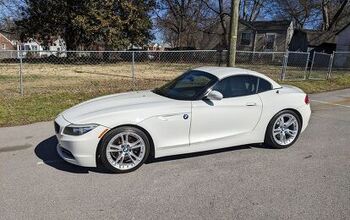
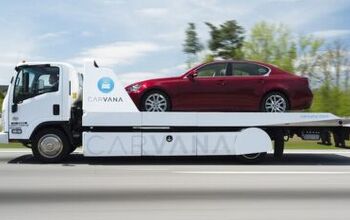

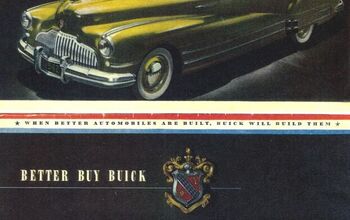
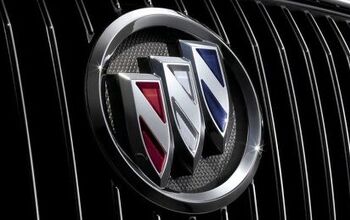



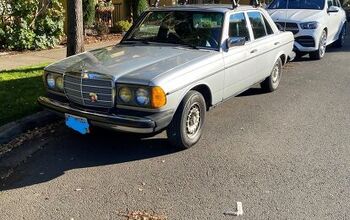



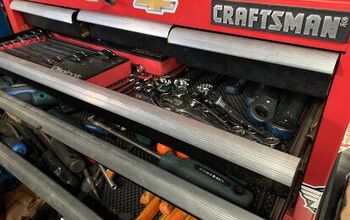


Comments
Join the conversation
Don't forget about the carry trade. It's pretty much dried up now, but almost all the cash going to the Bank of Japan from exports came right back to the US in the form of the carry trade, where institutions borrowed near-zero-percent interest in yen and invested it in higher yielding US assets... crap like mortgage backed securities. So to those whining about Japanese perfidy in manipulating their own currency, Wall St. benefited greatly from the process, and they could have taken that money and invested it wisely (in the Big-3 perhaps) but decided to place their bets on more speculative adventures.